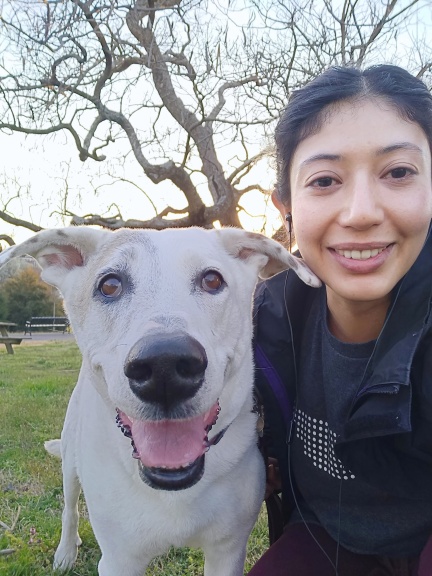This week we've put the spotlight on Marisol Ramirez-Solano, a Statistical Genetic Analyst II in the Center for Quantitative Sciences. Read on to learn more about how she came into her role in biostatistics!
What are your research interests and what have been the major findings so far?
I’m very interested in single cell RNA sequencing; I think it’s going to be a big topic in the future. I don’t have many publications yet but I’m working to change that. In a recent publication, we describe the presence of non-host RNA fragments derived from microbiome and environmental bacteria in circulating lipoproteins.
What was your draw to statistics and/or Vanderbilt?
I’m a bench scientist that migrated to the analysis side recently. In my last year of college, I
worked as a research intern studying inflammatory gene expression in patients with
nonalcoholic steatohepatitis. It was my first contact with research, genetics, and biostatistics; I
was hooked. Later, I enrolled in a Master’s degree program in Biochemistry, although my thesis
project was mainly focused in microRNA expression using high density microarrays. It was
because of this project that I started diving deeper into biostatistics and programming. Also
because of this project, I came to Vanderbilt as a summer student, and I ended up coming back
as an employee.
What is your best advice for aspiring statisticians?
My advice to aspiring statisticians is to never stop learning and to always find time to catch up with
new methods. A good thing to mention is that experimental design is extremely important,
statistics can’t rescue a poorly designed experiment.
What is your philosophy about research?
In my opinion, research should make reproducibility a norm. All of us involved in research can
contribute to this by making data, code, and results available, including detailed methods in
publications, keeping version control of analyses and software, publish in journals that
encourage data and code sharing, and request code and data when reviewing papers.
What makes Vanderbilt special in your experiences of collaborating with others?
When I joined Vanderbilt I quickly learned that most projects involve multiple groups and everyone
brings their expertise to the discussion. Working here has given me the opportunity to
collaborate with investigators of different backgrounds and research focuses, and I have learned a
lot in the process.
What are your thoughts on controversial statistical topics such as the role of data science in the future,
adjusting the p-value for multiple comparison, ethical issues, etc.?
I think data science will become even more important in the future, especially in healthcare.
Data science will play an essential role in everything from health record data to precision
medicine.
Tell us about your life outside of Vanderbilt. Do you have a significant other? Hobbies?
Stuart, my partner, and I enjoy taking our dog, Sally Ann to the park and on hikes to the Warner
parks. We like watching movies at home, and cooking together. Recently, we started making
our own sourdough bread from scratch! Also, I started knitting about 10 years ago, it is still my favorite hobby.
Finally, what is something that your colleagues do not know about you? (Until now, of course.)
I am a big fan of everything related to space exploration- the Cassini-Huygens mission to Saturn
and its moon Titan is my favorite.
